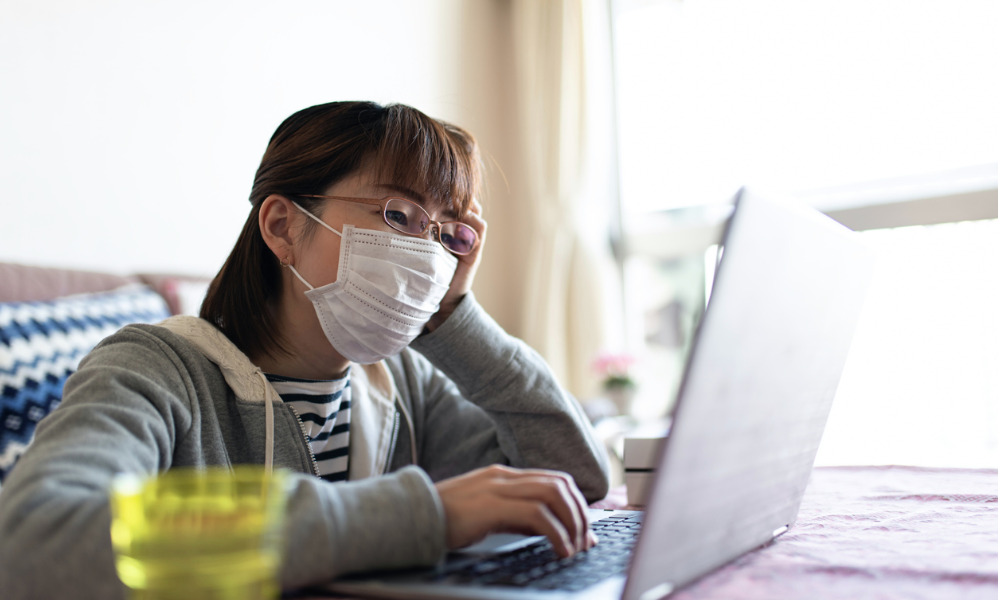
Extended periods of social isolation can lead to depression and distress

As the COVID-19 pandemic continues to spread across the globe, many experts, including the World Health Organisation (WHO) have shared tips to safeguard mental and psychological well-being.
A top tip includes avoiding watching, reading or listening to news that can cause anxiety or distress. This is crucial — besides helping to mitigate misinformation, it manages stress levels triggered by the constant barrage of bad news.
Instead, WHO advises to seek information mainly for practical steps to prepare plans and protect yourself and loved ones.
“Seek information updates at specific times during the day once or twice,” wrote WHO. “The sudden and near-constant stream of news reports about an outbreak can cause anyone to feel worried.
“Get the facts. Gather information at regular intervals, from WHO website and local health authorities platforms, in order to help you distinguish facts from rumours.”
In the advisory, WHO makes a timely reminder to protect yourself and loved ones not just physically, but also mentally and psychologically in times of a public health crisis.
READ MORE: How to work from home: Tips on staying healthy and productive
Social isolation
However, as countries encourage ‘social distancing’ or go into lockdown to prevent further spread of the virus, things can get more complicated in terms of managing mental health.
The WHO defines social distancing as maintaining at least 1m or 3ft distance between yourself and anyone. Some countries even advise a distance of 6ft. This is because if someone is sick and you’re in close proximity, you can breathe in the harmful droplets and fall ill.
And even without official national lockdowns, authorities worldwide are restricting travel and urging people to stay home as much as possible to manage the outbreak.
Disrupted personal lives aside, working from home has also become a ‘new normal’ for most. While going to the office may have been a chance for individuals to socialise and build relations, the perk is lost — for now.
With the uncertainty surrounding COVID-19, extended periods of such measures can lead to feelings of social isolation, which can be detrimental to mental health.
According to a meta-analysis co-authored by Julianne Holt-Lunstad, PhD, a professor of psychology and neuroscience at Brigham Young University, lack of social connection heightens health risks as much as smoking 15 cigarettes a day or having alcohol use disorder.
She also found that loneliness and social isolation are twice as harmful to physical and mental health as obesity, reported American Psychological Association.
Newcastle University epidemiologist Nicole Valtorta, PhD, aligned with Holt-Lunstad’s findings and found increased risks to physical health, due to feelings of isolation.
“Lacking encouragement from family or friends, those who are lonely may slide into unhealthy habits,” said Valtorta. “In addition, loneliness has been found to raise levels of stress, impede sleep and, in turn, harm the body. Loneliness can also augment depression or anxiety.”
READ MORE: How to fight loneliness in the workplace
Combat loneliness
In an attempt to combat the negative impact of social isolation, the WHO addressed ways to better safeguard your mental health. They suggested the following:
- Stay connected and maintain your social networks
Even in situations of isolations, try as much as possible to keep your personal daily routines. If health authorities have recommended limiting physical social contact to contain the outbreak, you can stay connected via e-mail, social media, video conference and telephone.
- Pay attention to your own needs and feelings
Engage in healthy activities that you enjoy and find relaxing. Exercise regularly, keep regular sleep routines and eat healthy food.
- Keep things in perspective
Public health agencies and experts in all countries are working on the outbreak to ensure the availability of the best care to those affected.